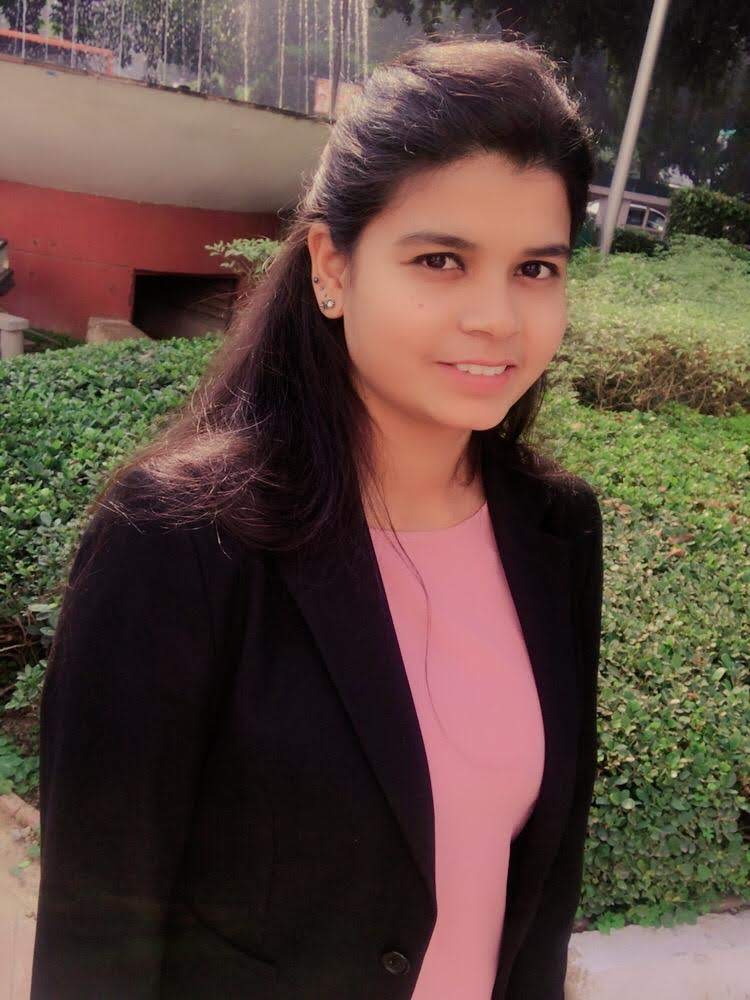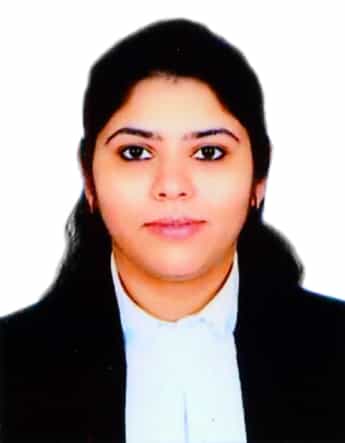Interview with Mr. Aditya Gaggar, Advocate on Record at Supreme Court of India
After exchange of pleasantries, the Interviewer, on behalf of E-Justice India, began interviewing Mr. Gaggar.
1. Interviewer: How would you like to describe yourself to our readers?
Interviewee: I am an Advocate on Record at the Supreme Court, also practising at the Delhi High Court, mainly dealing with commercial matters. I have been working from about seven year now after having graduated from Faculty of law, Jamia Millia Islamia, in 2013.
2. Interviewer: What piece of Advice would you give to our readers who are in law school and are looking forward to give Advocate on Record examination?
Interviewee: It is a professional exam and not all advocates appear for it. Usually, advocates who have been practicing for a long time in Supreme Court appear for this examination but this is not a necessity even for them, though it is good to have such a qualification. The eligibility criteria of this examination is that after graduation you should have experience of practice for 4 years and 1 year of articleship under an Advocate on Record of atleast 10 years of standing. Basically the AOR exam, tests you on four subjects which are all related to practice at the Supreme Court. It is a written examination which includes subjects like drafting, leading cases, professional ethics and practice and procedure.
3. Interviewer: How should a law student plan their internships in a law school?
Interviewee: There are two ways to plan, either you can go to a wider approach or a narrow approach. The wider approach is meant for people who have not zeroed in on their interest or specialisation and those who love to explore. So in 5 years you can explore every field of law, can experience what you like or dislike, etc. Once you have completed a good number of internships like 7-8 internships in law school in different fields of Law, this will help you realise your interest in a particular field and then you can go further for that specialisation as frankly speaking, these days there is so much difference between what you do as a Corporate Lawyer, as a Dispute Resolution Lawyer, as an In-house counsel or in a NGO. This approach is for the people who would like to explore and who are yet to decide their specialisation. The other approach is a slightly narrow approach, for students who are focused and ready from the beginning and already have in mind the specialisation they are going to choose. For example, if you are interested in IPR, it obviously makes sense to intern under those lawyers who are specialised in IPR as it is all about specialisation now a days. When you do a lot of internships under that specific area, it will also show on your CV and you would have also developed your skills on that area.
If I talk about my own experience, I took more of a broader approach and tried to cover a large spectrum of areas as I wanted to explore myself and I had interned under NGOs, corporate firms, IPR firms, legal aid, quite literally everywhere under the sun and this helped me as well in some sense as starting in law school, initially I has an impression that I would like to go for work in corporate firms but with time I realized that I don’t enjoy working in corporate firms as sitting at one place is not my cup of tea, so this impression faded away after doing internships in law school.
4. Interviewer: Do you feel any change in your career from being an employee in many chambers of law offices in Delhi to become an Independent Law practitioner?
Interviewee: Lucky for me when I say, that as I have experienced a good range of work while interning at different places, so I came to realise that litigation is one area where I enjoyed working. So, when I started working after graduation, except for one or two places where I had worked shortly, most of my career was being in a litigation now.
5.Interviewer: A raft of entrepreneurs is entering into the legal space” What piece of advice you would like to give our law students who want to be entrepreneurs?
Interviewee: There are few important things which an entrepreneur should know, one of which is that an entrepreneur should be open to learning , not just as the legal kind of learning as even the legal entrepreneurs need lot more skills like computer programs, business skills, some knowledge of marketing, etc. You should be ready to understand that you are going to have to pick up many skills in your journey as an entrepreneur. The other thing is that you need to have a vision about what you have to do and what you want to achieve as an entrepreneur, it could be in a specific field you want to work in or some problem that you want to solve as an entrepreneur and you have to work towards that vision constantly. The skills require to reach the end would either have to be learned by oneself or you could collaborate with someone who has such skills. These two things are very important and the last thing is an appetite for risk. You are going to face many problems along the way. You must understand that this is something only suitable for those who are happy with unstable incomes, as many desires to have a stable job but, being an entrepreneur you need to remember that there will be days when there is no income, even days when you need to pay money out of your pocket. So, you should be prepared mentally for this and this should not demotivate you from the work itself.
6. Interviewer: If you look back, what qualities would you quote about yourself which helped you to become a person what you are now?
Interviewee : I can’t say that there is one or two things as everybody is the sum total of what has gone by. If there is something that stands out in my reaching the current position in my career, I would say that it has to be the examination pattern of the law school entrance exams. Till I studied in school I had no idea of getting into law, I was a non-med student, mostly preparing for engineering examinations. I also gave a lot of other entrance examinations in law, business, economics etc. and also qualified for quite a few but at the back of my mind nothing stood out in particular. However, when I was giving all of these entrance examinations, all of them had a different pattern for example engineering had a different pattern, economics had a different pattern, and what I loved about law entrance was the pattern of the entrance examinations as it had a wide range of sections with subjects like legal knowledge, reasoning, general aptitude, maths, general knowledge and legal english. I kind of liked this sort of examination though at this point of time, I didn’t realise that actual practice of law is nothing like this. I know it sound weird, but this entrance examination pattern was what I found attractive and probably got me into law.
7. Interviewer: What are views about e- court system, should it continue even after covid situation gets normalised?
Interviewee: Frankly speaking judiciary has a certain kind of inertia in bringing about or adapting to changes. I do believe that virtual courts should continue and I am happy that we are finally actually spending time and resources to implement e-court systems. We are already making do with what we have but we are also seriously working in implementing better systems to develop it as a complete solution. The lawyer community, which is usually not looking out for change, has also had to go with this change. It is a good development and has helped in a lot of ways for example, before this there was so much running around the courts especially if you are practicing in Delhi where there are many courts. If a lawyer has to go to 2-3 courts every day, you waste a lot of time in travelling. Because of e- courts system travelling time is saved, you don’t have to carry around bulky files as all the files are in the laptop. But these are basic things. When you get down to it there are lot of other real benefits for example e- filling system in which you can file the matter directly from your home or anywhere else. In present times, I know lawyers who are sitting in Chennai and arguing the matters in Delhi, if we talked about this six months back, this was something that everybody would have laughed at, as something practically not possible in India. If this continues in the long run it will make justice cheaper because the amount of resources needed will be reduced and it will make justice accessible everywhere, even to farthest corners of country. So, this is a very good development.
8. Interviewer: What are the upcoming fields you would recommend law students to consider?
Interviewee: I don’t think anyone should worry about upcoming fields because what you should pursue is that you are interested in, as every field of law is as important as others. Law is not like other markets where there is a constant demand and supply imbalance. It’s not like the demand for something goes out and a new thing comes replaces it. Here, as long as there is a law there will be disputes in it. Though one can certainly keep an eye out for newly legislated laws that might interest you. Laws like Information Technology Law, Intellectual Property Laws, Insolvency law, etc. are in that sense emerging fields.
9. Interviewee: Any plans for LLM?
No, plans for Judiciary as of now.
I had applied for Central Civil services and even got through the prelims examination twice but I couldn’t get through mains and I realised it takes your undivided attention and a whole lot of effort as well as the process is time consuming as a single round of examination takes a year. However, I have no regrets as such, in hind sight I think I probably wouldn’t have been a good personality match for what is required in civil services.
I have been thinking of LLM for quite some time now and I have also had offers from several good universities but I feel LLM is a dilemma because if you think of it in purely cost and benefit terms it’s not a really a degree which is essential in any sense or adds as much in a CV but I would still like to do it someday, possibly from outside India, simply to experience their different study methodology and to experience a different legal system. I remain open to it but I am still making up my mind.


